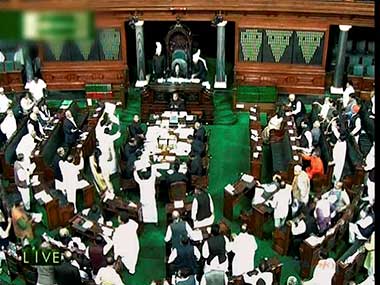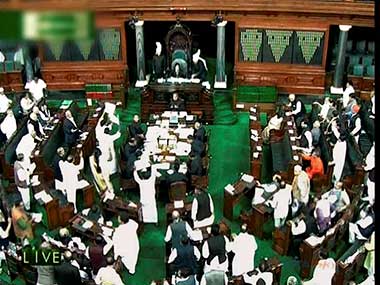One would presume that any multinational that is considering launching operations in retail in India would be following the debates on the FDI in both houses of Parliament keenly and with bewilderment and bemusement. Does the country want FDI in retail? The passage of the bill (if it happens, and it seems it will), by majority, in both houses of parliament would suggest so. After all, India is a ‘functioning’ democracy with two houses of parliament, and the bill would have been passed into law by a majority vote following established ‘democratic’ procedures. But, to anyone who has watched the ‘passage’ of the bill, the picture is not vivid and sharp, it’s hazy and distorted. [caption id=“attachment_547884” align=“alignleft” width=“380”]
 PTI[/caption] Which party wants the bill? Which party doesn’t? Which states want the bill? Which states do not? Which powerful leader is for the bill and which powerful leader is against it? Which parts of the bill are acceptable to all and which parts aren’t? Which of the statements by politicians on both sides of the divide are public posturing and which of them are genuine beliefs and positions? If one systematically answers these questions, it’s apparent that, while the bill has, indeed, ‘passed’, the situation is absolutely undecipherable. Any entity investing through the retail FDI route will be faced with peaceful protests and boycotts at best. There will be picketing at their outlets, we will see red flags and effigies. Worse, if a new government comes in at the centre or at the state level, we could see positions being upturned. In such an atmosphere, why should anyone take the risk of investing in retail in India, when the only certainty, even with the passage of the bill, is uncertainty? Sure, businesses take studied gambles, but investing in retail FDI in India will be like taking a bet on a rank outsider –and that’s not the kind of bet that boardrooms like to take. If the headline, “Retail FDI passed in both houses of parliament in India” makes India sound like a vibrant democracy, sadly, the copy will tell another story altogether. That Robert Vadra was right; India is a banana republic.
PTI[/caption] Which party wants the bill? Which party doesn’t? Which states want the bill? Which states do not? Which powerful leader is for the bill and which powerful leader is against it? Which parts of the bill are acceptable to all and which parts aren’t? Which of the statements by politicians on both sides of the divide are public posturing and which of them are genuine beliefs and positions? If one systematically answers these questions, it’s apparent that, while the bill has, indeed, ‘passed’, the situation is absolutely undecipherable. Any entity investing through the retail FDI route will be faced with peaceful protests and boycotts at best. There will be picketing at their outlets, we will see red flags and effigies. Worse, if a new government comes in at the centre or at the state level, we could see positions being upturned. In such an atmosphere, why should anyone take the risk of investing in retail in India, when the only certainty, even with the passage of the bill, is uncertainty? Sure, businesses take studied gambles, but investing in retail FDI in India will be like taking a bet on a rank outsider –and that’s not the kind of bet that boardrooms like to take. If the headline, “Retail FDI passed in both houses of parliament in India” makes India sound like a vibrant democracy, sadly, the copy will tell another story altogether. That Robert Vadra was right; India is a banana republic.
Anant Rangaswami was, until recently, the editor of Campaign India magazine, of which Anant was also the founding editor. Campaign India is now arguably India's most respected publication in the advertising and media space. Anant has over 20 years experience in media and advertising. He began in Madras, for STAR TV, moving on as Regional Manager, South for Sony’s SET and finally as Chief Manager at BCCL’s Times Television and Times FM. He then moved to advertising, rising to the post of Associate Vice President at TBWA India. Anant then made the leap into journalism, taking over as editor of what is now Campaign India's competitive publication, Impact. Anant teaches regularly and is a prolific blogger and author of Watching from the sidelines.
)